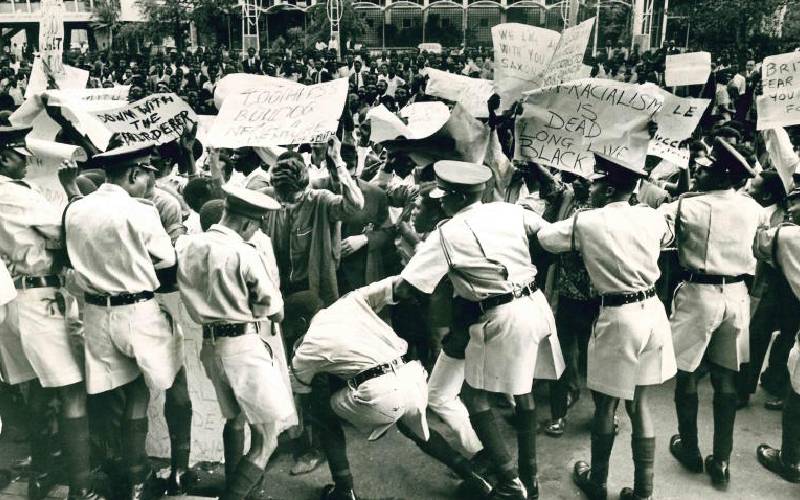×
The Standard e-Paper
Smart Minds Choose Us

Police dispersing University of Nairobi students during a riot in March 1968. [File, Standard]
Nairobi was on fire. And like evil fangs of a deadly snake, the twin steel rails took the fire first to Nakuru and ultimately Kisumu. And for a week, the entire country was in chaos characterised by bonfires, batons cracking of workers’ bones, and arrests.